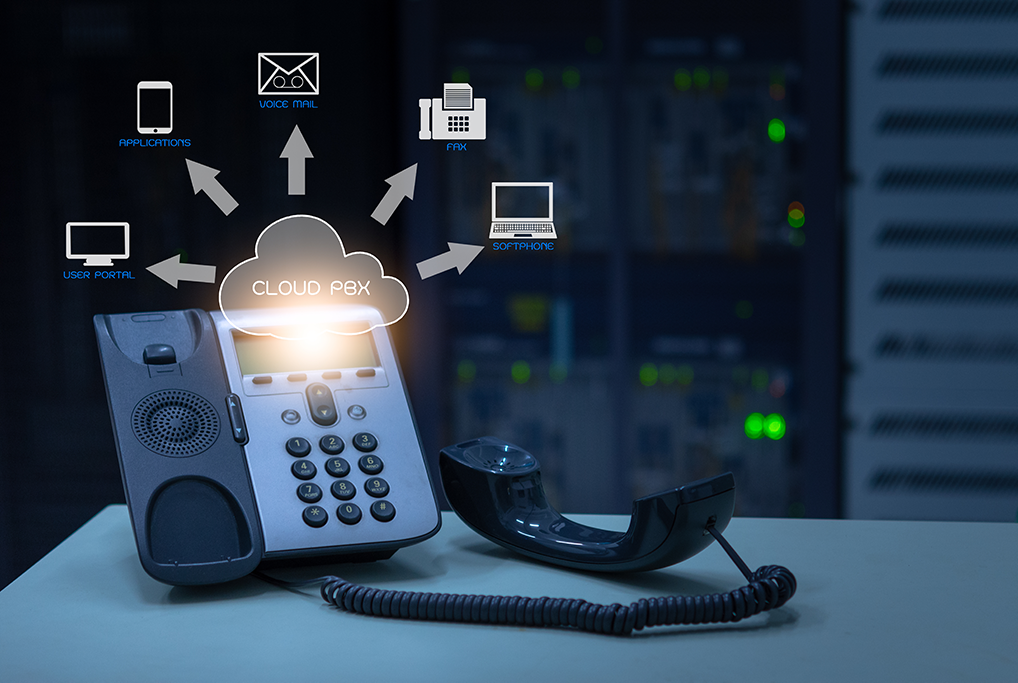VoIP Integration with CRM
Customer Relationship Management (CRM) software is a given in any business that wants to run as efficiently as possible when it comes to managing and leveraging their how they connect with their customer base. CRM records all interactions with a business’ customer base and use myriad analytics to find trends both internal and external that help improve the customer experience and identify more effective and efficient ways of increase revenue generation.
Life before CRM Integration with VoIP
CRM has been around much longer than VoIP has been. Depending on how old you are, you may remember data entry before the integration. Premise based phone systems, or PBX’s, had very limited and unintelligent call data reporting software. A manager would be typically be able to see time of the call, duration of a call, who made the call, and who the employee was calling.
While there is some value to the PBX call detail record (CDR), it really didn’t help if that same information was somehow associated with the customers and prospects in the business’ CRM. The only solution: the sales or support person had to manually enter the call information and all the information related to that call (customer need help, prospect wants a call back in month, etc.). Wrap up for one call could take the same amount of time as it would take an agent to make or receive 5-10 calls.
CRM was also much more expensive that CRM today. Like PBX’s, businesses usually had to purchase a CRM software package.
- Depending on the cost, made it prohibitive to small or newer businesses with a limited budget.
- CRM was software only and had to be hosted on a computer, usually a server of some type. This was additional expense to the business as was the maintenance on the hardware.
- CRM software required routine feature upgrades and bug fixes that were often billed separately.
- Most CRM manufacturers would not allow any type of PBX integration even if it were available.
Advent of CRM/VoIP Integration
As integrations go CRM, none is more important than VoIP integration. Hand in hand with this integration was the introduction of hosted or cloud based phone systems. Open source by nature, hosted phone systems can easily integrate with just about any CRM. While there a many choices in the CRM a business chooses, all have key benefits in common. Please note that most of the below benefits often involve the use of some kind of contact center software (more on that later).
- VoIP friendly.
- Improved efficiency for sales and support agents.
- Click to dial allows an agent to initiate a call by simply clicking a phone number in the CRM.
- Data dips will match an incoming call with the CRM and if there is a match the customer/prospect profile pops up on the agent screen providing useful information before the call is answered.
- Customer call recording for improved customer support personnel performance can be found in CRM attached to a customer’s profile.
- Pulling call reports into CRM helps managers get a better understanding of the customer experience.
- Chat archives in CRM give an even clearer picture of the point of engagement between a business and its customers.
- An integrated support ticketing module will associate any support tickets opened by customer along with any VoIP calls that were made related to that specific support ticket.
- Marketing departments can evaluate the effectiveness of a particular campaign in part by analyzing VoIP calling behavior. For example, when a support campaign is launched, does VoIP call volume increase or decrease?
- Data input is automated (vs. the traditional manual entry) freeing the sales or support person to focus on their job performance.
- CRM today is usually priced as per user, monthly subscription price that includes feature upgrades and security patches.
- Like most VoIP services, a CRM platform is hosted in the cloud which eliminates the need for a business to purchase a server to host the CRM on premise.
CRM and Contact Center Software
CRM software is an extremely powerful analytic tool used to assimilate and interpret data from different systems. Contact center software is also a very powerful tool focused specifically on a business’ phone calls, that’s it. Contact centers work in real time primarily for things like:
- Listen/barge in feature for agents in training.
- Wallboard visual show realtime call statistics for agents in a call center.
- Agent presence monitoring by management.
- Skills based call routing.
- Advanced analytics.
When combined, CRM and contact center software will give a business insight into realtime employee performance on one level, and customer interaction on a broader level.
Let us help you find the right CRM integration for your business!




